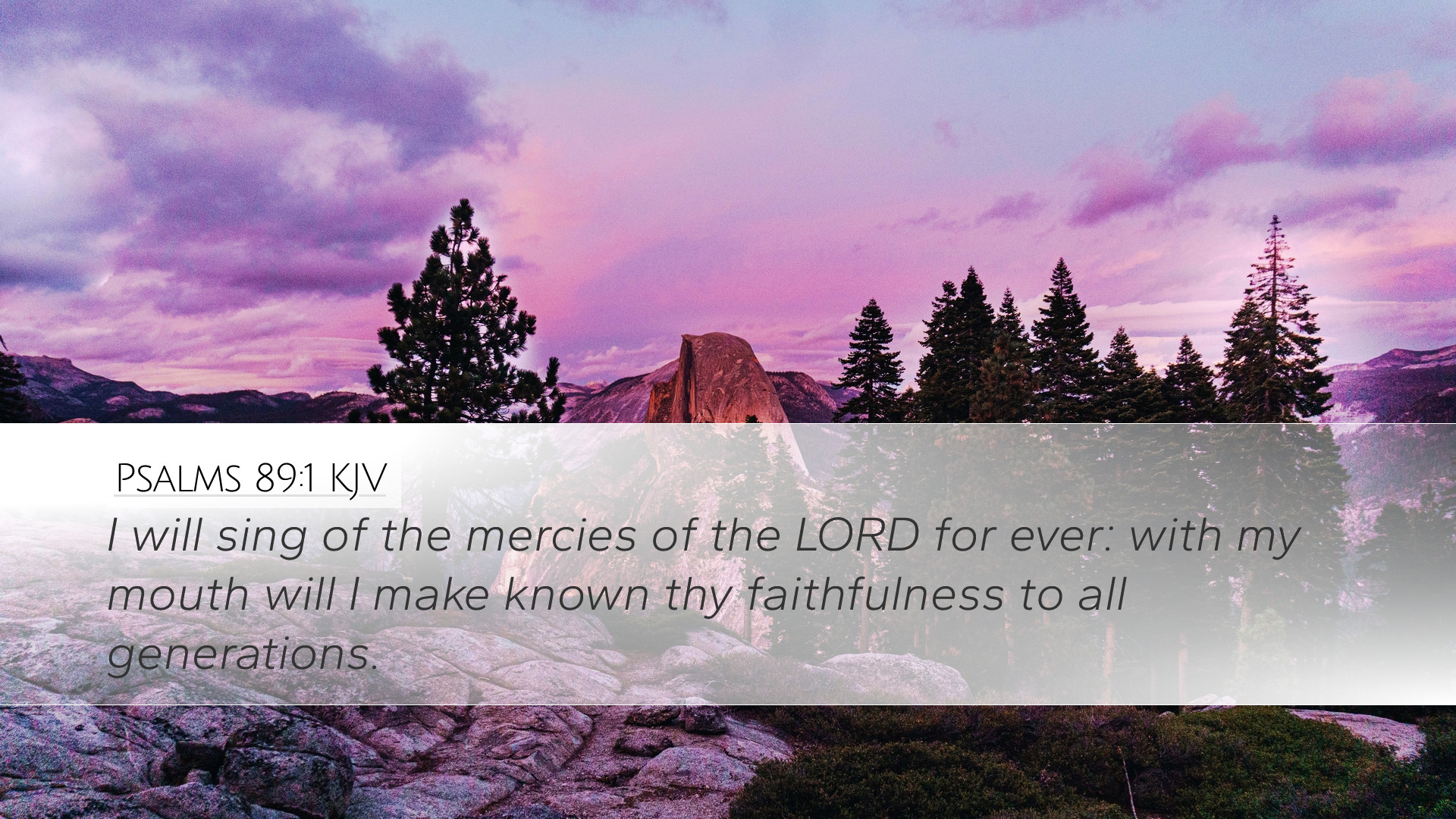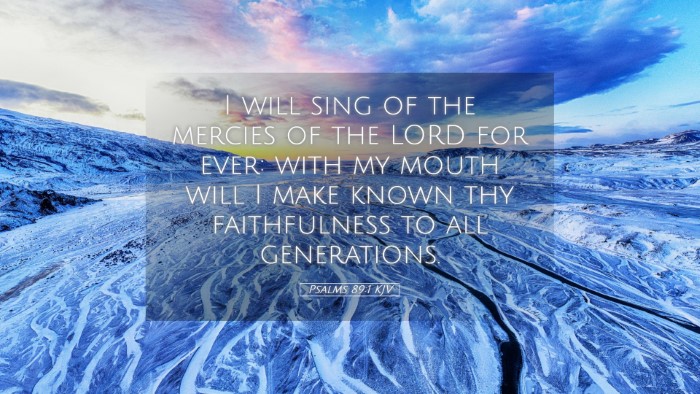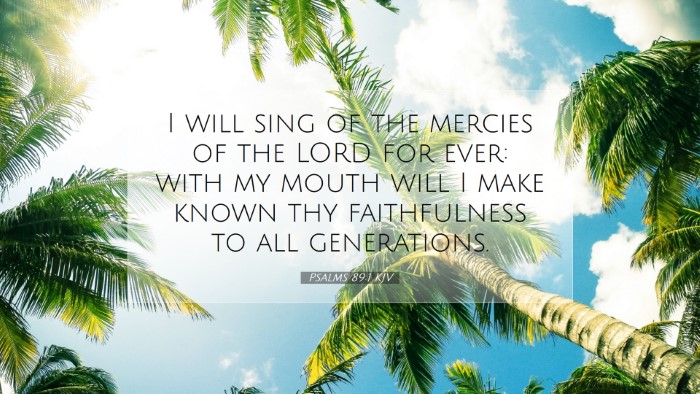Psalms 89:1 - A Commentary Overview
Psalms 89:1 states, "I will sing of the mercies of the LORD forever; with my mouth will I make known your faithfulness to all generations." This verse serves as a profound declaration of praise and sets the tone for the entire psalm, intertwining themes of divine mercy and faithfulness.
Context and Structure
The Book of Psalms is a collection of songs and prayers that capture the breadth of human emotion and experience in relation to God. Psalm 89 is attributed to Ethan the Ezrahite and is distinct for its royal themes, specifically reflecting on the Davidic covenant. This psalm begins with a commitment to worship and articulate confidence in God’s enduring faithfulness.
Commentary Insights
1. Matthew Henry's Perspective
Matthew Henry emphasizes the importance of singing as an expression of worship and thanksgiving. He notes that "the mercies of the LORD" refer to the lovingkindess and compassion exhibited throughout history, particularly in relation to God's covenant with Israel. Henry highlights that this verse implies a continuous action of singing and praising God, indicating that worship should be a lifelong commitment.
-
The Nature of God's Mercies:
Henry notes that God's mercies are evident in both spiritual and temporal aspects, revealing His grace in guiding, protecting, and providing for His people.
-
Generational Faithfulness:
The call to declare God's faithfulness to "all generations" underscores the responsibility of believers to pass on their testimonies of God's goodness, ensuring that the coming generations are aware of and can rely on His enduring promises.
2. Albert Barnes' Insights
Albert Barnes regards this verse as an introduction to the themes of the psalm that revolves around God's covenant with David. He argues that the psalmist's commitment to sing of God's mercies embodies a personal response to divine grace and establishes a model for corporate worship.
-
Enduring Praise:
Barnes observes that the term "forever" implies an ongoing, unceasing act of worship that reflects a heart wholly devoted to recognizing God's attributes, particularly His mercy and truth.
-
Declaration of Faithfulness:
The phrase "with my mouth will I make known" suggests an active role in testifying about God's faithfulness, a vital aspect of community worship where believers share their experiences of God’s abiding presence.
3. Adam Clarke's Commentary
Adam Clarke discusses the depth of the psalmist's declaration, interpreting the "mercies of the LORD" as the covenant love that God shows towards His people. Clarke emphasizes that this verse acts not only as an individual pledge of praise but also as a corporate call to worship, reflecting a communal aspect of faith.
-
The Role of Music in Worship:
Clarke points out that singing is an intrinsic part of expressing faith, establishing a connection between the worshiper and God, while also fostering unity among the congregation.
-
Testimony as Legacy:
The commitment to making God’s faithfulness known to "all generations" highlights a legacy that transcends time, encouraging every believer to acknowledge and recount the goodness of God to ensure that future generations remember His works.
Theological Implications
The verse encapsulates key theological themes central to Judeo-Christian thought, including covenant, worship, and the nature of God. The everlasting mercy of the LORD reflects His unchanging nature, and the psalmist's commitment to praise involves a personal response to divine initiative.
Furthermore, the call to share God’s faithfulness across generations translates into a broader ecclesiological principle—each believer has a role in the continuity of faith. This is particularly relevant for pastors and theologians as they engage with and pass on doctrinal truths and doctrines of God's character to their communities.
Applications for Today
As believers reflect on Psalms 89:1, several applications emerge which are vital to the life of the church today:
-
Commitment to Worship:
Just as the psalmist resolved to sing of the LORD’s mercies, contemporary believers are encouraged to cultivate consistent, heartfelt worship that acknowledges God’s continuous intervention in their lives.
-
Generational Responsibility:
It is crucial for congregations to engage in teaching and sharing testimonies of God’s faithfulness with younger generations, fostering a culture of remembrance and gratitude.
-
Public Declaration:
The verse inspires communal worship that extends beyond individual experiences, encouraging the body of Christ to publicly declare God's faithfulness through testimonies, worship gatherings, and teaching.
Conclusion
Psalms 89:1 invites not only reflection on God's merciful character but also a participatory response in worship. As scholars, pastors, and students of the Word engage with this verse, they uncover profound insights into the nature of God’s relationship with humanity and the importance of sharing this relationship with others. The enduring call to worship through song serves as a powerful reminder of the hope and faithfulness found in God across all generations.


